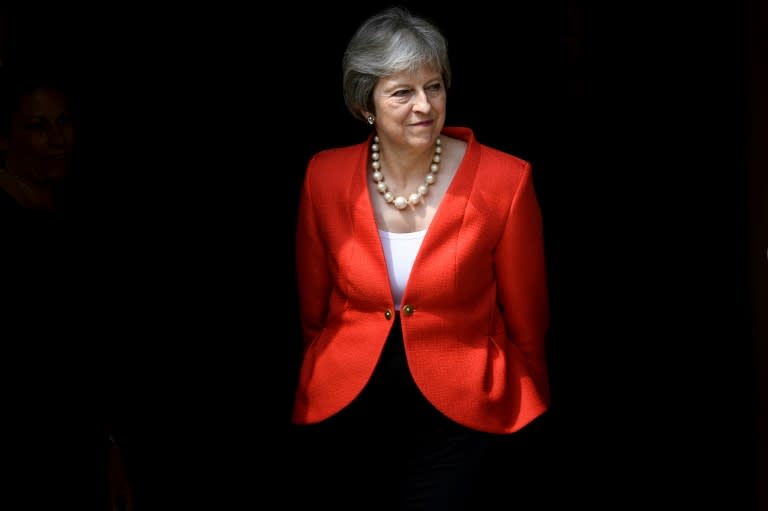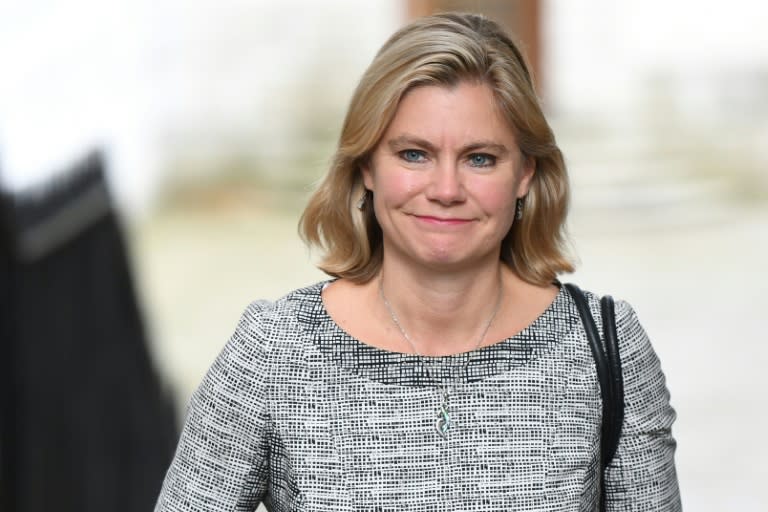Ex-minister backs new Brexit vote as eurosceptics pressure May
British Prime Minister Theresa May drew fire from all sides Monday over her Brexit strategy as a former minister described it as a "fudge" and called for a second EU referendum while eurosceptics readied a parliamentary challenge. Former education secretary Justine Greening, who opposed Brexit, said May's plan to follow European Union rules on trade in goods without being able to influence them was "the worst of both worlds". Noting the deep divisions in government and parliament on the way forward, Greening said voters must decide -- becoming the most senior member of May's Conservative party to back the idea. "The only solution is to take the final Brexit decision out of the hands of deadlocked politicians, away from the backroom deals, and give it back to the people," she wrote in an article in The Times. May has repeatedly ruled out a second referendum, after Britons voted by 52-48 percent for Brexit in 2016, but Greening's support for a so-called People's Vote will give the campaign a huge boost. Her intervention is also another blow for May's compromise plan for close ties with the EU, which had already come under fire from Conservatives who want a clean break with the bloc. Two top ministers, Boris Johnson and David Davis, quit in protest last week followed by a string of junior walkouts, including another on Monday. Eurosceptics will have a chance to show their strength in the House of Commons later Monday by voting on amendments to a bill setting up May's new customs regime after Brexit. Downing Street declined to say if it would accept some of the changes put forward by Jacob Rees-Mogg and other hardline Brexiteer MPs, in a bid to get them to drop one in particular that would have the effect of wrecking May's plan. If no compromise is struck, there is a risk the eurosceptics could vote against the bill in its entirety. If opposition parties join them, May would have a major crisis on her hands. At the same time, the prime minister is also testing her plan with the EU, as Brexit negotiations resumed in Brussels on Monday. - Split the party - May spent the weekend defending her plan, and did so again in a speech at Farnborough airshow Monday, insisting it would protect trade in goods with the EU and avoid border checks in Ireland. She said it would aksi allow Britain to control migration, end the jurisdiction of EU courts and forge its own trade policy -- despite US President Donald Trump saying the prime minister's plan could "kill" a US-UK trade deal. Eurosceptics believe it keeps Britain too close to the EU, and Davis, the former Brexit secretary, warned in the Financial Times on Monday it would deny the government the "freedom to run our own economy". "It would be profoundly dangerous to leave the EU but remain subject to regulations made by institutions in which we have no say," he wrote. In an article in the Mail on Sunday, May urged eurosceptics to keep their "eyes on the prize", warning: "If we don't, we risk ending up with no Brexit at all." Rees-Mogg, the leader of the powerful European Research Group of eurosceptic Conservative MPs, said May still had time to change course and warned the current plan would split the party. "The inevitable consequence of the parliamentary arithmetic is that she will need to change it to keep the party united," he told BBC television. Pro-Europeans also dislike May's plan, particular her goal to have looser ties with the EU for Britain's dominant services sector. A cross-party group of MPs have tabled amendments to Monday's bill -- the Taxation (Cross-border Trade) Bill, also known as the customs bill -- seeking a new customs union with the EU. But one MP told AFP they would likely not push it to a vote on Monday, instead waiting to see what the eurosceptics do. They can hold their fire for Tuesday when the same amendment is tabled to a separate trade bill.



